Local elections 2018: what the parties say about integration

Ahead of the March 21 local elections, we asked the main parties in the 10 Dutch cities with the biggest international populations to set out their position on three key issues: housing, integration and jobs.
Here are their answers to the question: ‘Local authorities have a key role to play in integrating new arrivals and ensuring they learn Dutch. How is your party planning to encourage the international community to integrate fully into local life?
D66 Haarlem
D66 is best known in the Netherlands for its focus on education: education for our youth and education for our adults. Learning the language is the fastest way to integrate in any society and in Haarlem, this is no different. In the last few years, we further developed the programme to make sure new international residents are coached and motivated to learn Dutch.
GroenLinks Haarlem
We fully agree that local authorities key role to play in integrating new arrivals . For instance, when the Syrian refugees arrived in 2015 and 2016 Haarlem did an excellent job providing them with not only a place to stay but also with many many volunteers helping them learn Dutch. They were so-called ‘taalmaatjes’ (language buddies). Where other cities were struggling with the refugees and anti-immigrant sentiments Haarlem did an amazing job. We had way more volunteers than refugees. Most of them have found a house in Haarlem by now. So integration and learning Dutch are crucial and that’s were the local government comes into play.
But when it comes to the international community in Haarlem we need to step up as a local authority. Or maybe even as local politicians. It might be a great idea to organize a meetup with the newly elected politicians and the local international community.
VVD Haarlem
Haarlem has much to offer to its residents and visitors. The VVD embraces Haarlem as a typically Dutch, open-minded place of tolerance and liberty. We do not exclude new arrivals. A lot of people from the international community have found their way to Haarlem and have successfully integrated into our society. That is something they did themselves. They have grabbed the opportunities that Haarlem and the Netherlands offer. We encourage new residents to learn Dutch and contribute to the society. If you can work, you should work. We believe that learning the Dutch language is the responsibility of the new resident. Haarlem has plenty of affordable courses to learn Dutch
Partij voor de Dieren, Leiden
There are four important key principles underlying the activities of the Party for the Animals: sustainability, empathy, personal freedom and personal responsibility. Empathy motivates us to reach out to all who are new to our beautiful city and provide them with sufficient information and guidance to find their way in Leiden. We also expect new people to take responsibility and actively look for the support they need.
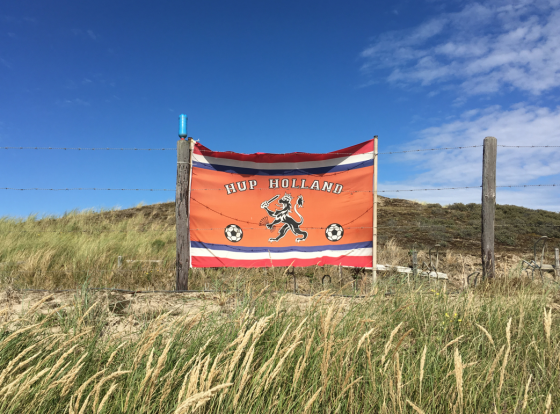
PvdA, Leiden
We want to further expand our expat centre and make it the one and only place where immigrants and expats need to go to sort out everything. Think about practical matters such as schooling and a family doctor but also questions about where to go out and how public transport works. We also want to continue with the current intensive programme for refugees, in which they get to know our city and start learning Dutch over a six month period. The university, for example, offers courses for expats.
PvdA, The Hague
The Hague is a colourful and diverse city with an international profile. More than half of our city’s population is of non-Dutch descent. Such diversity offers many opportunities but also poses challenges. The Hague PvdA strives for a unified society in The Hague: a society where everyone can feel at home. We would like for the different citizens of The Hague to encounter each other more often. To do so, we will restore the traditional role of local community centres, facilitate a meeting place for neighbourhoods, and ensure children from different neighbourhoods go on school outings together, for example, so that they can learn about each other and the diversity of this city. Every child in The Hague deserves equal opportunities when it comes to good education. The Hague PvdA will set up a municipal pre-school, so that all children can enjoy equal opportunities in education.
D66, The Hague
D66 would like to stimulate language courses through the ‘brede buurtschool’ – language lessons for less money. Refugees should be able to learn Dutch as soon as they arrive at an asylum centre. Now these language courses start when people finally find a place to live. This sometimes takes a year or 18 months of waiting without starting to learn the language.
GroenLinks, The Hague
GroenLinks welcomes everyone in The Hague and we are proud of the diversity in our city. To us, integration is not just the responsibility of newcomers but is a shared responsibility. All initiatives geared towards integration and increasing mutual understanding can therefore count our full support. To increase involvement in local democracy, GroenLinks wants to provide internationals with information in English (or in other languages) about the elections and the right to vote.
We want to make it as easy as possible for people to learn Dutch by offering courses in every neighbourhood. GroenLinks wants Dutch lessons to be free for status holders and a tailor made integration program for vulnerable newcomers with special needs such as such as young newcomers, the LGBT+ community and people with mental health problems.
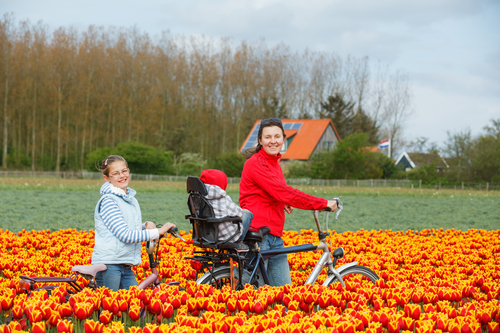
GroenLinks Amsterdam
Amsterdam has a long history of bringing together people from different parts of the world. GroenLinks is proud of this tradition. In order to make this diversity work we have to invest in meeting each other. Amsterdam should therefor facilitate informal meeting places between Amsterdammers and the international community. On top of that we want Amsterdam to offer free and good Dutch language and integration courses.
An open and diverse society takes care of all its residents, including undocumented migrants. That’s why we worked hard on guaranteeing a place to sleep and food for everyone that lives in the city.
D66 Amsterdam
Amsterdam is a city of 180 nationalities and one way or another, over half of the ‘Amsterdammers’ have a migration background. D66 is the only party in the city council that is in favor of more schools for the children of internationals. Both public and private. We want places such as the Zuidas, where many internationals work, to become neighborhoods where people can not only work, but also live and spend their time off.
We support mixed neighborhoods with affordable housing for all kinds of incomes. Today many neighborhoods consist of only social housing or property, without normal rental houses. Amsterdam is renowned for the famous Amsterdam approach for the integration of refugees, which was initiated by D66 alderman Ollongren. With this approach, newcomers get to learn the Dutch language from day one, and are individually assessed and supported to start an education, a job or if necessary receive healthcare.
The Amsterdam approach was very successful and is now integrated in national policy. We encourage internationals to vote for local elections, to become part of the Amsterdam community.
VVD Amsterdam
Integrating is first and foremost the responsibility of the expats moving to Amsterdam. They can choose if and how they want to learn Dutch. Usually this starts with socialising with Dutch speaking colleagues, but can also be done by joining local sports clubs, cultural clubs or doing volunteer work.
GroenLinks Delft
In order to feel at home in Delft it is important to quickly learn how to speak Dutch. While this is primarily the responsibility of the individual, we believe that refugees, as a vulnerable group, deserve extra attention. To help them learn the Dutch language, we want to support them in building social networks and stimulate them to participate in voluntary activities, language courses and sports.
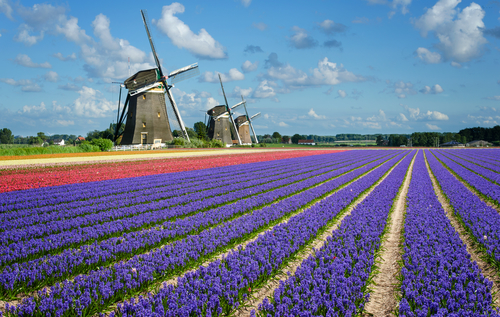
STIP (student party) Delft
STIP thinks it is important that the municipality encourages integration and should offer clear information in English on all the available courses in Delft. Delft is an international city and should be proud of it, activities focused on the international community like International Comedy at Theater de Veste should therefore be facilitated.
CDA Delft
The CDA encourages new arrivals to learn the Dutch language so that they can fully participate in our society, especially when they intend to stay in our city or country for a long time. We see an important role for a buddie scheme through which volunteers can help, and the city council can assist in this. In addition, w think it is important that new arrivals participate in the society and meet people from other nationalities. The CDA strongly believes in initiatives from society. This means that the government must not enforce this, but must encourage, stimulate and facilitate.
When there is a demand from the international residents and these residents take the initiative, the CDA would encourage the development of an international school in Delft.
SP Delft
Learning Dutch is important to find your way in a new country. The SP wants the local authorities to contribute to language lessons for people that cannot afford them. Additionally, we have learned from organisations that help battle poverty, that a local coordinator for refugees and immigrants is needed very much to show people the way to social care and financial regulations.
D66 Delft
D66 wants the municipality of Delft to ensure that asylum seekers and refugees can learn the Dutch language from day one. This way D66 wants to give them the chance to find a new home, to develop themselves and to contribute to society. By making guidance on choices in the field of work and education, the municipality can help these new residents to build their lives in good cooperation with aid organizations. If more than six months of guidance and support are required, the municipality will adjust this policy. D66 also wants more supervision on the quality and effectiveness of language lessons. For children of newcomers, D66 wants two-year international switch classes to be available.
VVD Delft
The VVD considers integration primarily to be the responsibility of the newcomer him or herself. The council should have enough education on offere to show newcomers the way. It can only force people to learn Dutch once they they become financially dependent on the council through welfare benefits.
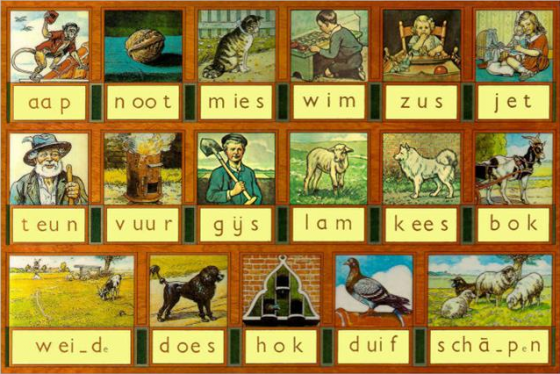
GroenLinks Eindhoven
Eindhoven is a sum of people with a lot of different backgrounds. We are in favour of ‘taal-maatjes’ – volunteers who help people to learn Dutch. They deserve full support of the city government. But the most important thing is good collaboration between government, residents, companies, cultural initiatives and sports clubs. We challenge everyone to share their thoughts, develop their ideas and meanwhile to learn Dutch. We make this city together.
PvdA Eindhoven
Eindhoven is a migrant city – 200 years ago it only had 2,310 inhabitants. We welcome the international community and its diversity in cultural backgrounds as an enrichment of our daily life. In an international city such as ours, speaking English will get you around in every day life.
But if you choose to build your future in the Netherlands it’s important that you and your family learn to speak Dutch. It’s a vital aspect of the integration process. In the recent past, learning Dutch was an individual responsibility. New arrivals were dependent on language courses offered by commercial companies. It has become clear that leaving this to the market is ineffective. The municipality should provide and pay for its own language lessons for new arrivals if we want integration to be successful.
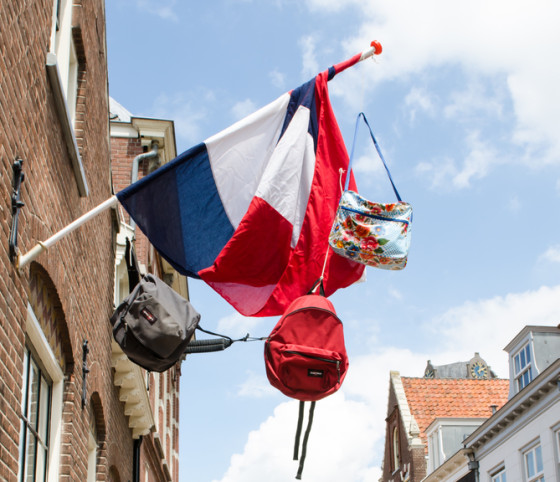
CDA Eindhoven
The CDA wants to stimulate citizens into learn the Dutch language, facilitating organizations which give Dutch lessons and one-on-one lessons with ‘maatjes’ – volunteers for Dutch lessons. Many organisations in Eindhoven are creating bridges between expats and natives. An international city needs to be International. We should involve our citizens with an ‘understandable’ language and in the meanwhile stimulate expats to learn Dutch.
PvdA Rotterdam
To create a society we need people to be able to interact with each other. The easiest way to do that is to speak the same language and take part in society. That is why last year we initiated a plan called ‘An A for language’. It aims to teach newcomers the language for free and with assist them with extra tutors. It’s important to not only learn the language but also how you can get your life up and running. You have to learn how to rent a flat, how you can get your health insurance, what the constitution is about and how to get a job. Newcomers will have an intake and after that intake the professionals and the newcomer will draw out a personalised two year plan to get them on their feet. That’s how we invest in people and their future.
VVD Rotterdam
We believe integration of new residents is primarily a responsibility of the residents themselves. For those that plan to stay in our country and/or Rotterdam, learning our Dutch language is essential. In case of unemployment, this is a prerequisite for receiving social benefits. In case of refugees, we realize that they often end up living on benefits because they need some extra guidance to be able to find a job in our labor market. That is why we think the municipality should find a more targeted approach when it comes to finding refugees a job once they settle in our country.
CDA Amstelveen
The CDA has a strong tradition in fostering the role of associations in society, simply because there are needs that neither the market nor government can fulfill. The local government should create the conditions for expats to integrate into society. Learning the Dutch language is key here. As such there is a role for the local government to ensure that good language courses are available sufficiently. In addition, we foster the role of sports and the community life in Amstelveen. Lots of sport clubs are active in Amstelveen, and within our city centre there is a vibrant life of cultural institutions. Expats are more than welcome here. More in particular we support good sport facilities in Amstelveen, in particular a new swimming pool and a diverse offering in sport centres.
CDA Utrecht
CDA stands for a big society. You can make plans for city growth, built houses and develop city strategies. But that is not what makes a city. It’s the people in the city. The CDA wants to see them connected, wants to stimulate society, stimulate (sporting) clubs and student societies.
Everyone should be able to join the Utrecht society, and language is a basic necessity. The quality of life can be promoted by developing programs to make students feel more at home in Utrecht, for example by promoting the current language café or to connect students or expats with Dutch students. These programs can be developed by educational institutions and housing providers. CDA believes that investment in sport facilities, clubs, and community centres is crucial. Our efforts are driven by connecting society. Besides, by stimulating expats and international students to join the Utrecht society we battle loneliness among this group.
We approached 75 different parties in the 10 cities with the most DutchNews.nl readers, where elections are taking place. In total, we contacted 220 party workers by email. This article is based on the replies received by March 16.
Thank you for donating to DutchNews.nl.
We could not provide the Dutch News service, and keep it free of charge, without the generous support of our readers. Your donations allow us to report on issues you tell us matter, and provide you with a summary of the most important Dutch news each day.
Make a donation